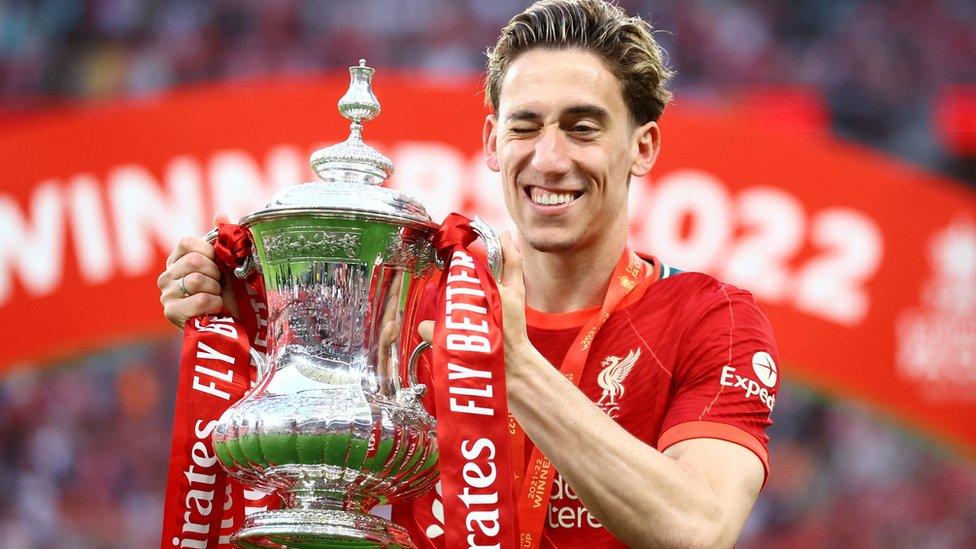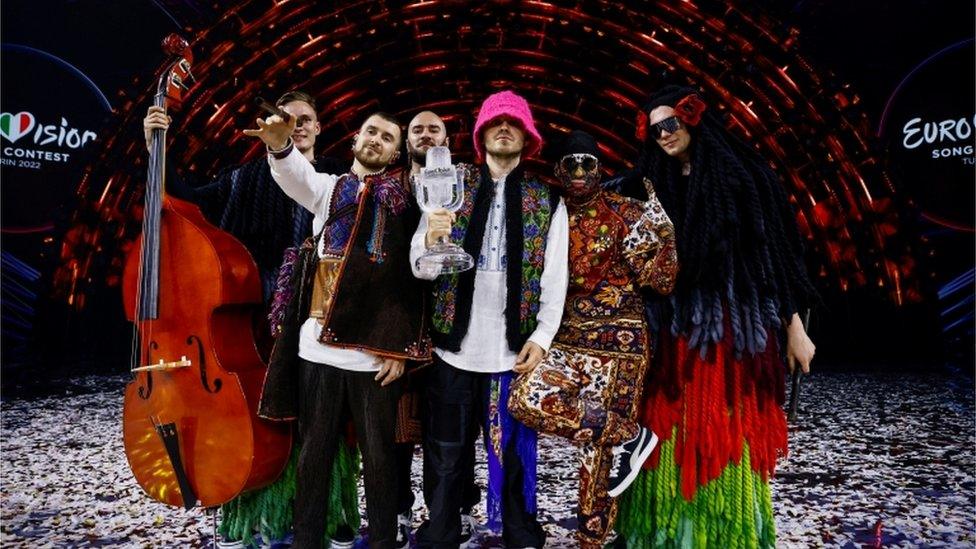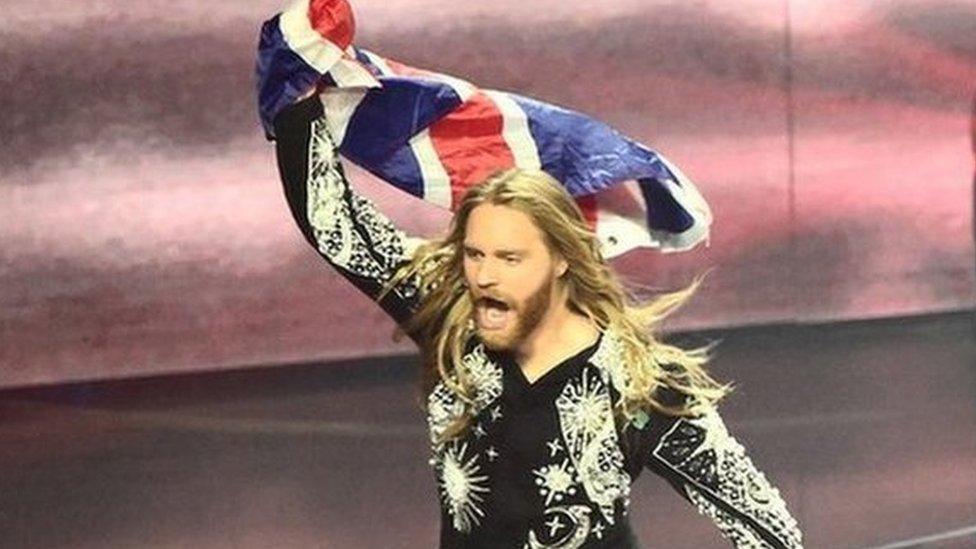Eurovision and FA Cup final attract bumper audience for BBC
- Published
Watch highlights of the Eurovision show
Nearly nine million people in the UK watched the Eurovision Song Contest on BBC One on Saturday, which saw the UK come second to winners Ukraine.
Figures were considerably up on last year, when an average of 7.4 million watched as the UK scored "nul points".
TV audience numbers for the Turin show peaked at 10.6 million, the BBC said
The Eurovision broadcast followed on the heels of BBC One's coverage of the FA Cup final, which drew an average audience of nearly six million.
Viewing numbers soared in the final half hour of the match at Wembley, which saw Liverpool beat Chelsea 6-5 on penalties - peaking at eight million.
There were also four million stream requests for the coverage across the BBC's digital platforms.
The live game was also shown on ITV1 where the audience averaged 1.6m. peaking at 2.6m.
December's Strictly Come Dancing final averaged 11 million viewers, while the Queen's Christmas message drew an audience of 8.96 million.

Liverpool"s Kostas Tsimikas celebrated with the trophy after a tense conclusion to the game
High hopes accompanied this year's British entry to the Eurovision.
Sam Ryder was one of the favourites to win the competition with his song Space Man - and topped the jury vote midway through proceedings on Saturday night, after two consecutive years of the UK coming last.
But, at close to midnight BST, a huge surge of public support in the popular vote propelled Ukraine's Kalush Orchestra to victory.
Their winning song, Stefania, combined old Ukrainian folk melodies and traditional flute with contemporary rap and hip-hop beats.
In a statement, the BBC said: "Sam's performance was simply out of this world and we couldn't be prouder of him."
"Kalush Orchestra's performance was incredible and generated a reaction both in the arena and around the globe like no other - we offer huge congratulations to Ukraine on their win."
An average of 8.9 million people tuned in to watch the competition on BBC One - a 55.5% share of the available audience, the corporation said.
Questions remain as to whether Ukraine will be able to host the contest next year, as tradition dictates.
Eurovision broadcaster EBU has said the situation presents "unique challenges" but Ukraine's President Zelensky has said his country will do its best to fulfil its hosting duties.
Related topics
- Published15 May 2022

- Attribution
- Published14 May 2022

- Published15 May 2022
